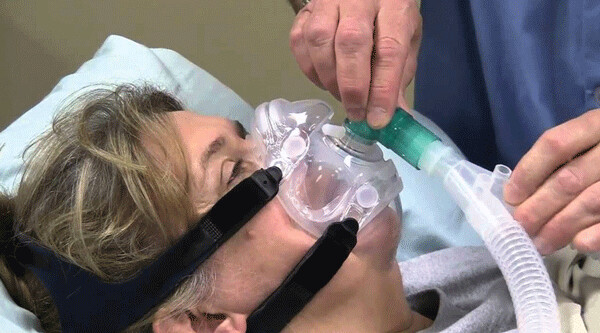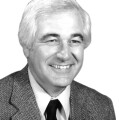News & Articles
Browse all content by date.

We are in serious trouble. America is suffering from a world-wide pandemic that has been the downfall of most empires. It’s called greed. One of our numerous billionaires, Howard Schultz, who convinced people that drinking $5 cups of coffee is a great physical and mental boost, wrote this prescient paragraph about money in his book From the Ground Up: “Money is never about money. It’s about dignity, autonomy, the saving grace of self-respect. Not having money isn’t just about a number in your bank account. It’s a blow to your body and soul. It can translate to a lack of security, a lack of opportunity, a lack of mobility, a lack of health, a lack of information, a lack of time, a lack of dignity. It can be as inescapable and suffocating as the air in our (Bayview) apartment on days when the money was tight and my parents were undone by their own anxiety and humiliation.”
In May of 2019 there were 2,604 billionaires in the world, with the United States having 607, the most of any country. In 2010 we had 404, by 2018 we had 586. At this time, 14 of the top 20 richest billionaires in the world live in the U.S. Over 40% live in two states, New York and California. We always hear we are the richest country in the world. According to Schultz, “money is about dignity and the saving grace of self-respect.” I wonder if a person can have an excess of dignity.
Recently 40 families in the Wyoming Valley School District in Trump country Pennsylvania received letters stating that if they didn’t pay their school lunch debts their children might be taken away from them and placed in foster care by a Dependency Court. Please read Schultz’s statement again about what happens if you have no money (“A blow to your body and soul.”) What is the answer in the richest country in the world why we can’t supply school lunches for all K-12 students? While we have the most billionaires in the world, many of our school children go hungry while almost all developed countries provide free school lunches. Why can’t 40% of our families in the richest country in the world come up with $400 to cover a family emergency? Do they think that “money is never about money?”
Want To Spend A 30-Day Vacation On The International Space Station?
NASA estimates that an average stay will run about $50 million. Food storage and communications would be charged at $35,000 a night and $17,500 an hour for astronaut’s time. That would pay for a lot of school lunches for poor kids. Or maybe you just want to take a quick trip to space and experience weightlessness. Billionaire Richard Branson of Virgin Galactic will take you for a 90-minute space ride for $250,000. He has already sold hundreds of tickets to rich Americans. Billionaires Jeff Bezos of Amazon and Blue Origin and Elon Musk of Tesla Motors and Space X are also spending billions to conquer space while having all kinds of problems paying their workers living wages so they can pay for their children’s school lunches. And they are both accused of treating their workers like expendable robots on planet Earth.
The July 2019 Harper’s Magazine article “EASY CHAIR: What We Do in the Shadows” by Kevin Baker is a fascinating review of the FBI’s “Operation Varsity Blues” where many rich people paid enormous sums to get their good—and sometimes wayward—children into our elite universities. It is the largest college-admissions scam ever prosecuted. Several actors are included among the 50 people charged, but Baker lists others of the upper classes: “It’s a whole spectrum of our lawless upper classes: financiers, businessmen, high-priced lawyers, a doctor, a developer, a Silicon Valley whiz, the owner of a winery, and (Lo and behold!) Jane Buckingham, author of the advice book “The Modern Girl’s Guide to Sticky Situations.” She’s in a personal one now. Evidently those charged also believe money is never about money. Evidently they don’t believe in free school lunches for all elementary and secondary students either.
The lead FBI investigator Joseph Bonavolonta summarized the scam: “Make no mistake: This is not a case where parents were acting in the best interests of their children. This is a case where they flaunted their wealth sparing no expense, to cheat the system so they could set their children up for success with the best education money could buy, literally. Their actions were without a doubt insidious, selfish, and shameful.” Evidently none of those charged were shocked and ashamed of a country that made them rich was suggesting that school children should be placed in foster care if the parents were unable to pay for their school lunches.
Some of the parents charged bought buildings or contributed millions to get their children into Stanford, Yale, Harvard, and other elite universities. Some parents had photographers attach their children’s heads to the bodies of muscular athletes and bribed coaches to give them athletic scholarships. One was accepted by the coach of a rowing team although she had never lifted an oar. Evidently the scammer’s always paid for their children’s school lunches so they wouldn’t be threatened with foster care placement.
The Pandemic Of Greed Has Altered Most Of Our Priorities
Rich Americans with tons of money have changed our priorities toward one another. In professional sports, billionaire franchise owners convince cities to build them multi-billion dollar stadiums lined with million-dollar executive boxes where millionaires can watch millionaire players play football, basketball, and baseball. The ability of parents to pay for school lunches is not a priority often heard in sky boxes. Now university athletic teams act as farm teams for pro franchises and university presidents are fundraisers, not educators. Priorities, priorities. In 2018 the highest-paid public employee in eight states was a college basketball coach and in 31 states it was a college football coach. Well, someone has to prepare all those scholarship athletes to entertain fans in all those skyboxes above the pissants in the stands.
Seattle in King County has a number of professional teams that have been purchased by Silicon Valley billionaires for their own amusement—and enrichment. Seattle has had an economic boom over the last two decades fueled by its proximity to Silicon Valley. Housing costs have exploded during that time, making many parts of the city unaffordable for many hardworking residents. Presently Seattle has over 10,000 homeless with what is called “vehicle residency” very prominent. A recent homeless survey revealed that 3,372 residents were sleeping in cars, old RVs, school buses, trucks, and vans.
A Seattle city outreach specialist working with the homeless summarized the situation: “These individuals and families relied on vehicles to survive unaffordable housing markets, labor and industrial shifts, and natural or personal disaster. I have known hundreds of people who moved into vehicles in public parking lots as a way to stay connected to familiar neighborhoods. Some slept in an RV even while employed at well-paid high-tech jobs to avoid paying punishingly high rents.” I wonder how many Seattle families living in vehicles can pay for their children’s school lunches. The homeless specialist has worked with a fully employed 66-year-old man who has lived for 17 years on the Seattle streets in a 20-foot-long RV. Read more about Americans living in vehicles in an article written by Graham Pruss. He describes a desperate situation for many Americans.
Homeless New Yorkers Among $11 Million Views
There are so many apartments going up in New York to house billionaires who can afford $50 million sky-high apartments that economic wars are breaking out about view space. New York Times writer J. David Goodman writes about how much views are worth in the city in his article “How Much Is A View Worth in Manhattan? Try $11 Million!” He describes what happened when wealthy occupants of a 12-story loft building in Chelsea learned that a developer wanted to build a skyscraping tower of very expensive apartments that would block the view loft people had of the Empire State Building. The loft residents met and decided to make the developer an offer he couldn’t refuse. They came up with $11 million to pay the developer for air rights next door so he could only build a three or four-story building. The developer bought the deal and walked away with $11 million. That’s life in one of the most expensive cities in the world.
But in that expensive city a May 2019 homeless survey revealed that there were 61,129 homeless on the survey date, including 14,674 families with 21,372 children. I wonder how many homeless families could not pay for school lunches.
What Is It Like To Live In A Country That Actually Loves And Cares For Children?
We currently have about 40 million low-income people on food stamps known as the Supplemental Nutritional Assistance Program (SNAP). The Trump administration just announced that it wanted to remove three million recipients from the program to save $2.5 billion. It wants to remove them by changing the limits on what savings and assets they have. Senator Debbie Stabenow of Michigan, a member of the Senate Agriculture Committee which oversees the program, objects to changes: “This proposal is yet another attempt by this administration to circumvent Congress. This rule would take food away from families, prevent children from getting school meals, and make it harder for states to administer food assistance.” The benefit amounts to $1.40 per person per meal.
What’s it like to live in a country that loves and cares for children? Let’s look at a few. In the Netherlands a maternity nurse visits every new mother daily for the first eight days after birth—and spends up to eight hours a day helping the new mother bond with the baby. She also helps take care of other children in the family. The nurse will also do the grocery shopping if necessary while looking out for the health of mother and baby. This service is covered by a universal health insurance program that also covers four months of paid maternity leave.
That great democratic socialist country Sweden grants new parents 16 months off work between them. France provides free physiotherapy to new mothers to recover quickly from the birth. Japanese women have the option of staying in the hospital for up to ten days to recover from the birth. Great Britain’ National Health Service covers all prenatal and postnatal examinations, covers all birth costs---and doesn’t even send a bill. Meanwhile in America, new mothers return to work quickly because they have no paid leave, and suffer the highest maternal mortality rate in the developed world. The rate is particularly high for black women who rarely have health insurance and cannot afford routine prenatal examinations.
And, I might add, almost all developed countries except the United States provide free school lunches through the high school level.
| Tweet |


